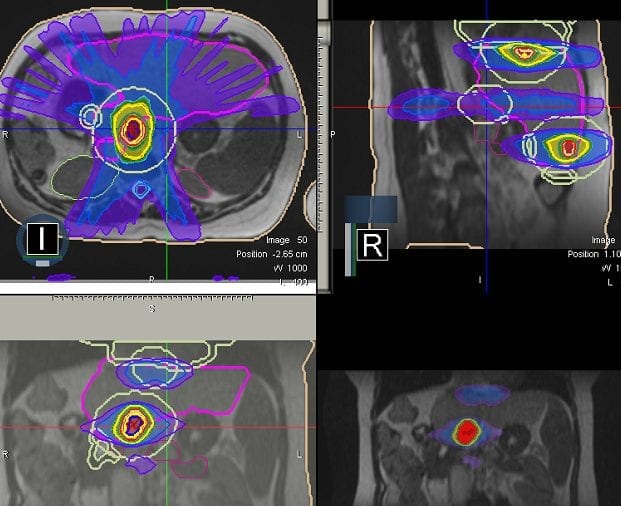Stereotactic ablative radiotherapy (SABR) for oligometastatic disease and certain localised cancers
During this period of Coronavirus, we all need to continue to deliver safe and effective care to our patients, looking where appropriate for innovative alternatives to surgery and chemotherapy. Stereotactic ablative radiotherapy (SABR) for oligometastatic disease and certain localized cancers is one such technique. Available across the network, SABR has been taken up as a useful tool by over 50 clinical oncologists who have attended our SABR Credentialling Programme and are now able to deliver Simple SABR independently through our Peer Review process.
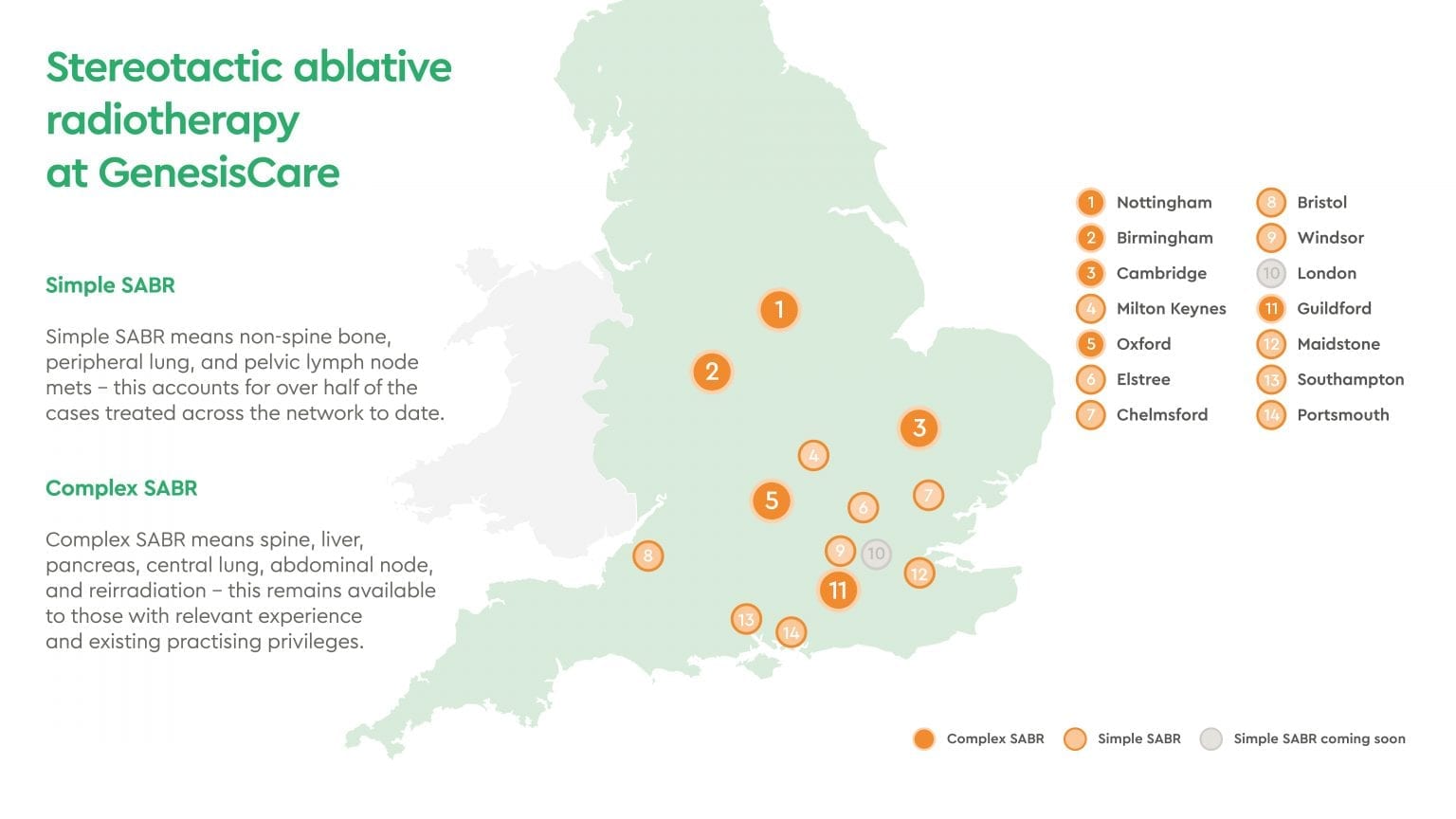
Two oncologists share their experiences;

Dr Sunil Skaria, a thoracic oncologist in Essex, has limited access to SABR at his NHS trust and so attended the GenesisCare credentialing programme. This empowered him to refer his first lung SABR case to our Chelmsford centre shortly afterwards, where he was mentored remotely by Dr Alex Martin, a thoracic SABR specialist and member of the GenesisCare SABR Advisory Team. Treatment delivery was also supervised by Louise Pardon, our Specialist SABR Radiographer. Speaking about his experiences, Dr Skaria said:
“Having attended the GenesisCare Virtual SABR Workshop in April, I found the online set up well-structured, particularly as this was the first workshop run in this way. The content was informative and the post event support useful in enabling me to refer my first SABR patient to GenesisCare.”
All GenesisCare centres can deliver Simple SABR and all consultants who have attended the Credentialling Programme, or who can demonstrate relevant experience in the NHS, can refer and treat Simple SABR cases. This means non-spine bone metastases, peripheral lung metastases, and pelvic lymph nodes, excluding reirradiation.
Complex SABR cases, such as liver, central lung, and spine tumours, can be referred for treatment at a GenesisCare centre under Project Primrose, a fee-for-service model that gives access to best-in-class radiotherapy and returns the patient afterwards to your ongoing care.

Dr Carla Perna, consultant clinical oncologist and prostate cancer specialist in Guildford, recognized that although she is credentialled for Simple SABR, onward referral of two pelvic reirradiation cases would offer her patients the best possible outcomes. Dr Perna commented:
“Both patients had complex recurrent disease in the pelvis. I knew SABR would be the superior treatment option for them, so I decided to refer them through Project Primrose. I found the process to be user friendly and very supportive throughout. Both patients had the opportunity of being treated on the new MRIdian MR-linac in Oxford, a technology I would only have dreamed of a couple of years ago. The results were outstanding and only six weeks post-RT had their PSA drop dramatically, but more importantly they did not experience any side effects. They were both impressed with the whole journey and grateful for the care shown toward them.
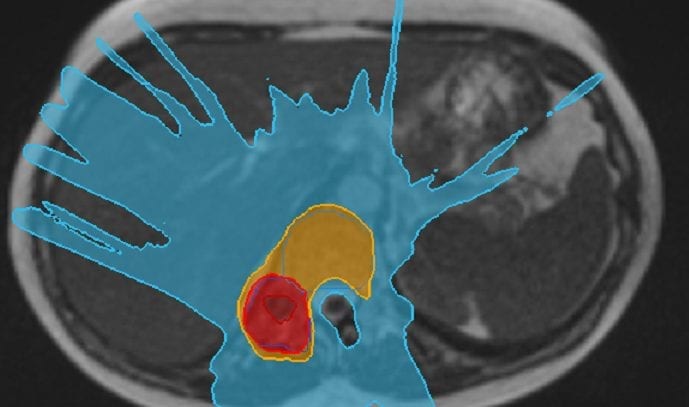
Figure 1 – Spine SABR
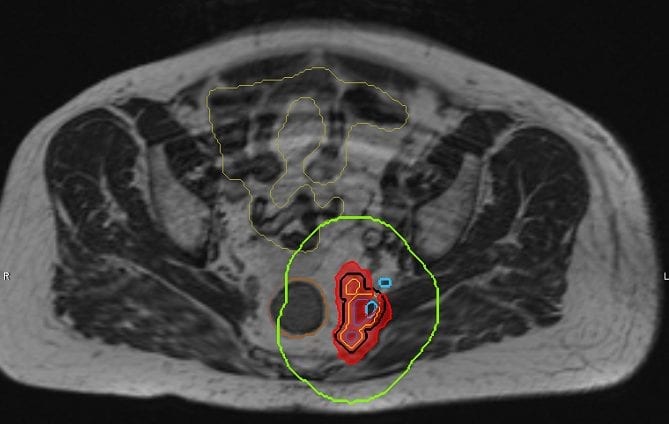
Figure 2 – Pelvic re-irradiation with sacral nerve root sparing
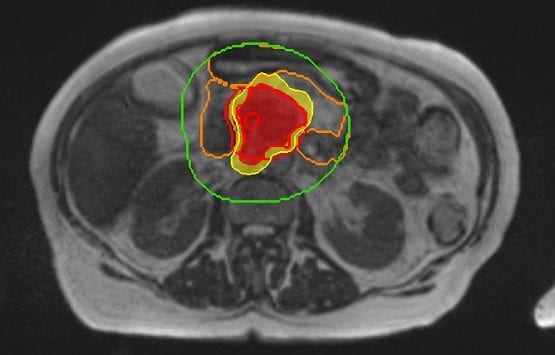
Figure 3 – Pancreas SABR
